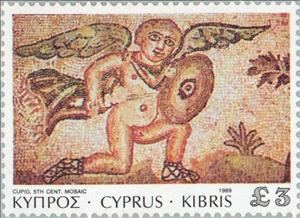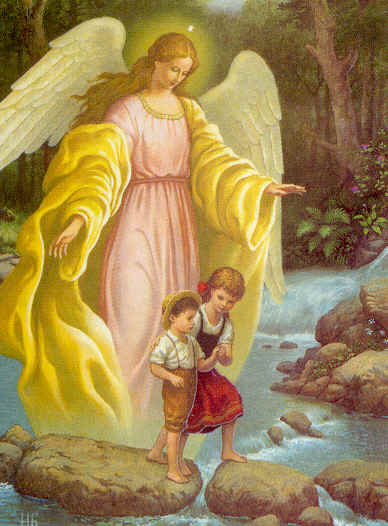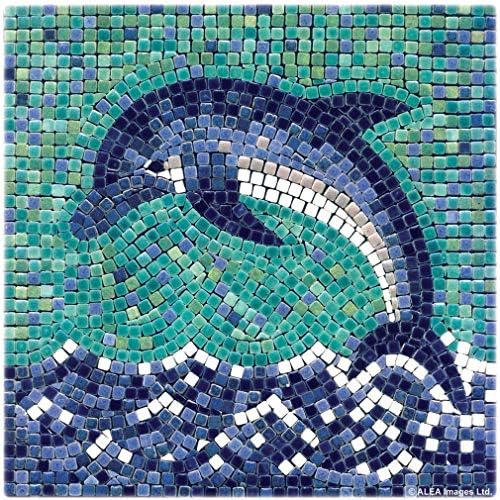Stamp: Paphos Mosaics - Cupid, 5th cent. A.D. (Cyprus 1989)
Paphos Mosaics - Cupid, 5th cent. A.D. (Cyprus 1989)
01 January (Cyprus ) within release Mozaieken goes into circulation Stamp Paphos Mosaics - Cupid, 5th cent. A.D. face value 3 Cypriot pound
| Stamp Paphos Mosaics - Cupid, 5th cent. A.D. in catalogues | |
|---|---|
| Michel: | Mi:CY 744 |
Stamp is horizontal format.
Also in the issue Mozaieken:
- Stamp - Paphos Mosaics - Orpheus, 3rd cent. A.D. face value 18;
- Stamp - Paphos Mosaics - Nymphs, 4th cent. A.D. face value 20;
- Stamp - Paphos Mosaics - Portrait of Crete, 4th cent. A.D. face value 2;
- Stamp - Paphos Mosaics - Centaur and Maenad, 4th cent. A.D. face value 3;
- Stamp - Paphos Mosaics - Poseidon and Anymone (3rd cent. AD) face value 4;
- Stamp - Paphos Mosaics - Apollo, 4th cent. A.D. face value 7;
- Stamp - Paphos Mosaics - Apollo and Daphne, 3rd cent. A.D. face value 1;
- Stamp - Paphos Mosaics - Cupid, 5th cent. A.D. face value 3;
Stamp Paphos Mosaics - Cupid, 5th cent. A.D. it reflects the thematic directions:
In Abrahamic religious traditions (such as Judaism, Christianity, and Islam) and some sects of other belief-systems like Hinduism and Buddhism, an angel is a heavenly supernatural or spiritual being. In monotheistic belief-systems, such beings are under service of the supreme deity (i.e. God).
Abrahamic religions often depict angels as benevolent celestial intermediaries between God and humanity. Other roles include protectors and guides for humans, such as guardian angels and servants of God.[3] Abrahamic religions describe angelic hierarchies, which vary by religion and sect. Some angels have specific names (such as Gabriel or Michael) or titles (such as seraph or archangel). Malevolent angels are often believed to have been expelled from Heaven and called fallen angels. In many such religions, the Devil (or devils) are identified with such angels
Archaeology or archeology[a] is the study of human activity through the recovery and analysis of material culture. The archaeological record consists of artifacts, architecture, biofacts or ecofacts, sites, and cultural landscapes. Archaeology can be considered both a social science and a branch of the humanities. It is usually considered an independent academic discipline, but may also be classified as part of anthropology (in North America – the four-field approach), history or geography
A mosaic is a pattern or image made of small regular or irregular pieces of colored stone, glass or ceramic, held in place by plaster/mortar, and covering a surface. Mosaics are often used as floor and wall decoration, and were particularly popular in the Ancient Roman world.



